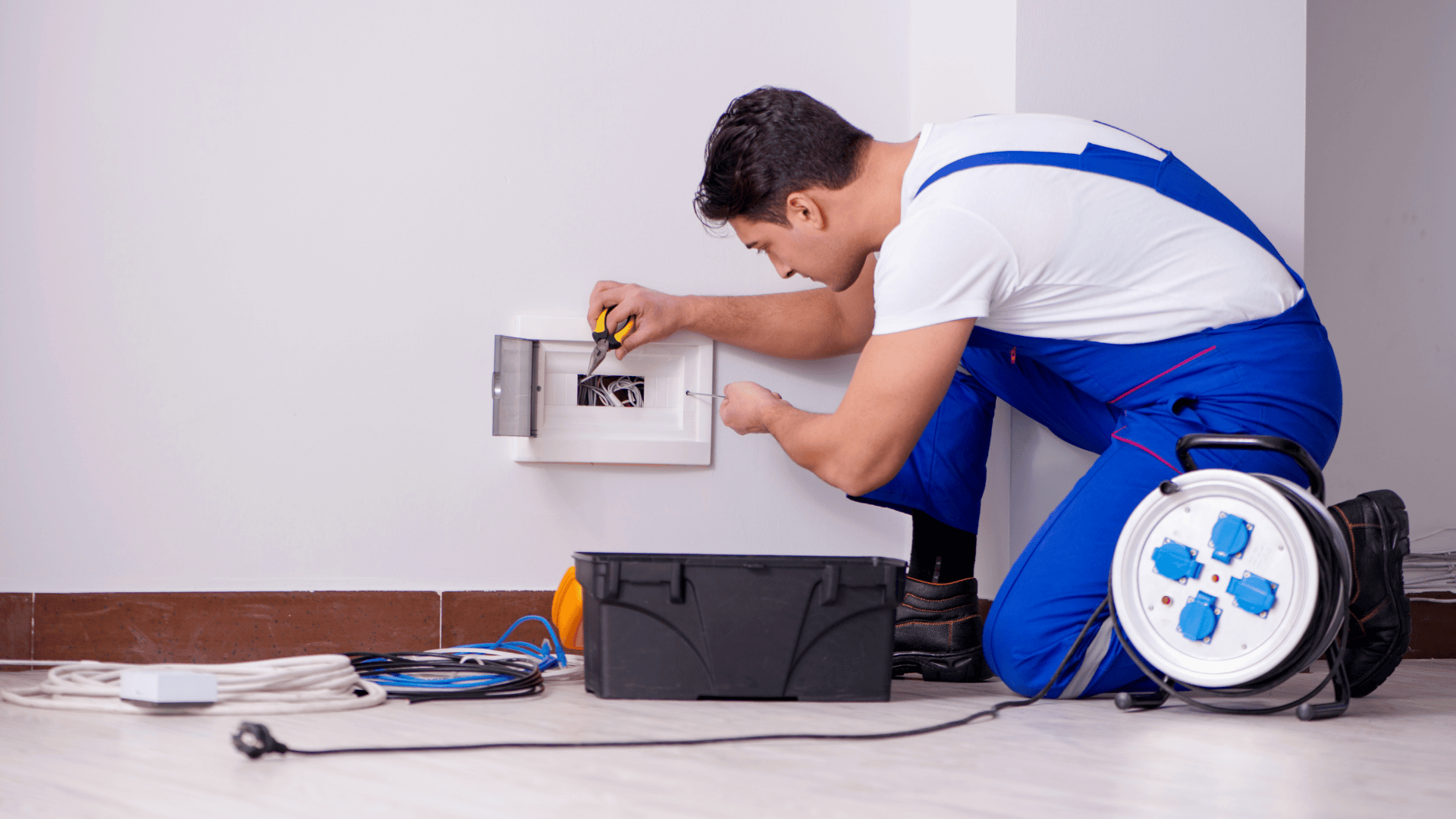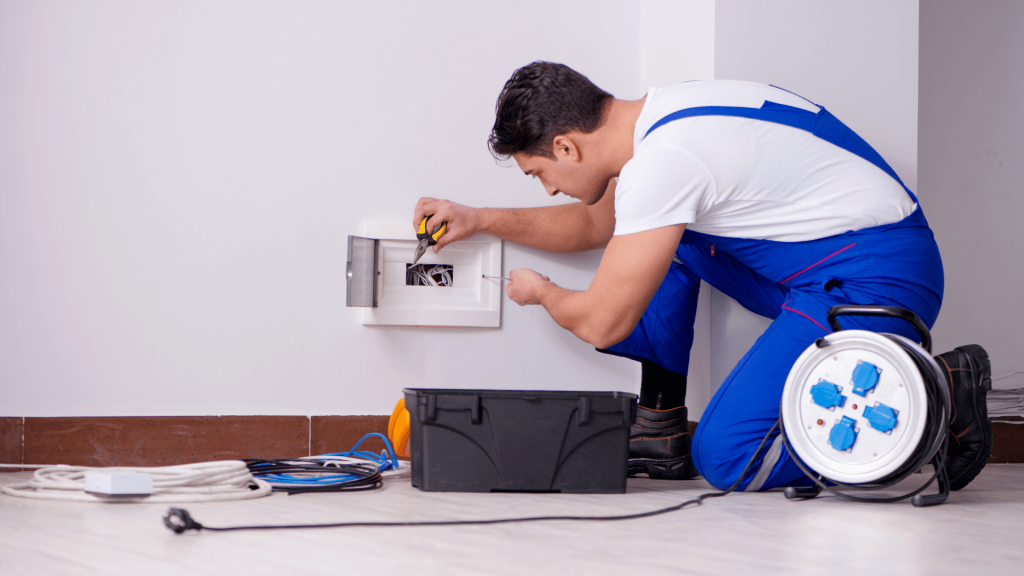Introduction:
Electrical safety is a cornerstone of a secure and comfortable home environment. While many homeowners focus on visible aspects like smoke detectors and fire extinguishers, the hidden electrical systems within walls and ceilings often go unnoticed. These systems, if left unchecked, can harbor faults that pose significant risks, including fires, electric shocks, and appliance damage. Regular electrical inspections are essential to identify and rectify such issues before they escalate into hazardous situations.
Incorporating routine electrical inspections into home maintenance schedules not only ensures the safety of occupants but also preserves the integrity of the property. By proactively addressing potential electrical problems, homeowners can prevent costly repairs, enhance energy efficiency, and maintain compliance with safety standards. This comprehensive approach to electrical safety fosters peace of mind and contributes to the overall well-being of the household.

The Importance of Regular Electrical Inspections:
Regular electrical inspections serve as a preventive measure against potential hazards that may arise from aging or faulty electrical systems. Over time, wiring can deteriorate, connections may loosen, and components can become outdated, increasing the risk of electrical fires and other dangers. By scheduling periodic inspections, homeowners can detect and address these issues early, ensuring the continued safety and functionality of their electrical systems.
Moreover, consistent inspections help in maintaining compliance with local building codes and insurance requirements. Many insurance policies mandate regular electrical assessments to validate coverage, and failure to comply can result in denied claims in the event of an incident. Therefore, routine inspections not only safeguard the home but also protect the homeowner’s financial interests.
Common Household Electrical Hazards Identified During Inspections:
Electrical inspections often reveal a range of common hazards that, if left unaddressed, can compromise household safety. These include:
- Outdated Wiring: Older homes may have wiring that doesn’t meet current safety standards, such as knob-and-tube or aluminum wiring, which can pose fire risks
- Overloaded Circuits: Excessive use of extension cords or plugging multiple high-wattage appliances into a single outlet can overload circuits, leading to overheating.
- Faulty Outlets and Switches: Loose or damaged outlets and switches can cause arcing, which is a common cause of electrical fires.
- Improper Grounding: Lack of proper grounding can result in electric shocks and damage to appliances.
Identifying and rectifying these issues through regular inspections is crucial in maintaining a safe living environment.
The Role of Electrical Inspections in Preventing Fires:
Electrical fires are a significant concern in residential settings, often resulting from undetected faults within the electrical system. Regular inspections play a vital role in identifying potential fire hazards, such as frayed wires, overloaded circuits, and malfunctioning electrical panels. By addressing these issues promptly, homeowners can significantly reduce the risk of fire-related incidents.
Furthermore, inspections ensure that safety devices like circuit breakers and smoke detectors are functioning correctly. These devices are critical in detecting and mitigating fire hazards, providing an additional layer of protection for the household. Regular maintenance and testing of these systems during inspections ensure they operate effectively when needed.
Enhancing Energy Efficiency Through Electrical Inspections:
Beyond safety, electrical inspections contribute to improved energy efficiency within the home. Identifying and repairing faulty wiring, outdated appliances, or inefficient lighting systems can lead to significant energy savings. For instance, replacing old incandescent bulbs with LED alternatives or upgrading to energy-efficient appliances can reduce electricity consumption and lower utility bills.
Additionally, inspections can uncover hidden energy drains, such as phantom loads from devices left plugged in or appliances operating inefficiently. Addressing these issues not only conserves energy but also extends the lifespan of electrical components, resulting in long-term cost savings for homeowners.
Understanding the Cost and Its Value:
An Electrical Installation Condition Report (EICR) is a comprehensive assessment of a property’s electrical systems, identifying any deficiencies or potential hazards. While some homeowners may be concerned about the EICR cost, it’s important to recognize the value it provides in ensuring electrical safety and compliance. The cost of obtaining an EICR can vary based on factors such as property size and complexity of the electrical system.
Investing in an EICR not only helps in identifying existing issues but also provides a roadmap for necessary upgrades or repairs. This proactive approach can prevent costly emergencies and enhance the overall safety and efficiency of the home’s electrical infrastructure.
Frequency and Timing of Electrical Inspections:
Determining the appropriate frequency for electrical inspections depends on various factors, including the age of the property, the condition of the electrical system, and any recent renovations or additions. As a general guideline, it’s recommended that homeowners schedule a comprehensive electrical inspection every 5 to 10 years. However, older homes or those with known electrical issues may require more frequent assessments.ACE Home Services
Additionally, certain circumstances warrant immediate inspections, such as after experiencing electrical shocks, frequent circuit breaker trips, or noticeable changes in electrical performance. Prompt attention to these signs can prevent more severe problems and ensure the continued safety of the household.
Choosing a Qualified Electrician for Inspections:
The effectiveness of an electrical inspection heavily relies on the expertise of the professional conducting it. Homeowners should seek licensed and certified electricians with a proven track record in residential electrical assessments. Verifying credentials, seeking recommendations, and reviewing past work can aid in selecting a qualified professional.
Engaging a competent electrician ensures that inspections are thorough and compliant with current safety standards. These professionals can provide valuable insights into the state of the electrical system, recommend necessary upgrades, and offer guidance on maintaining electrical safety moving forward.
Conclusion:
Regular electrical inspections are a fundamental aspect of home maintenance, playing a critical role in preventing hazards, enhancing energy efficiency, and ensuring compliance with safety standards. By proactively identifying and addressing electrical issues, homeowners can protect their property, safeguard their families, and avoid costly repairs. Investing in routine inspections and understanding the associated costs, such as those for an EICR, underscores a commitment to a safe and efficient home environment.

Founder Dinis Guarda
IntelligentHQ Your New Business Network.
IntelligentHQ is a Business network and an expert source for finance, capital markets and intelligence for thousands of global business professionals, startups, and companies.
We exist at the point of intersection between technology, social media, finance and innovation.
IntelligentHQ leverages innovation and scale of social digital technology, analytics, news, and distribution to create an unparalleled, full digital medium and social business networks spectrum.
IntelligentHQ is working hard, to become a trusted, and indispensable source of business news and analytics, within financial services and its associated supply chains and ecosystems











